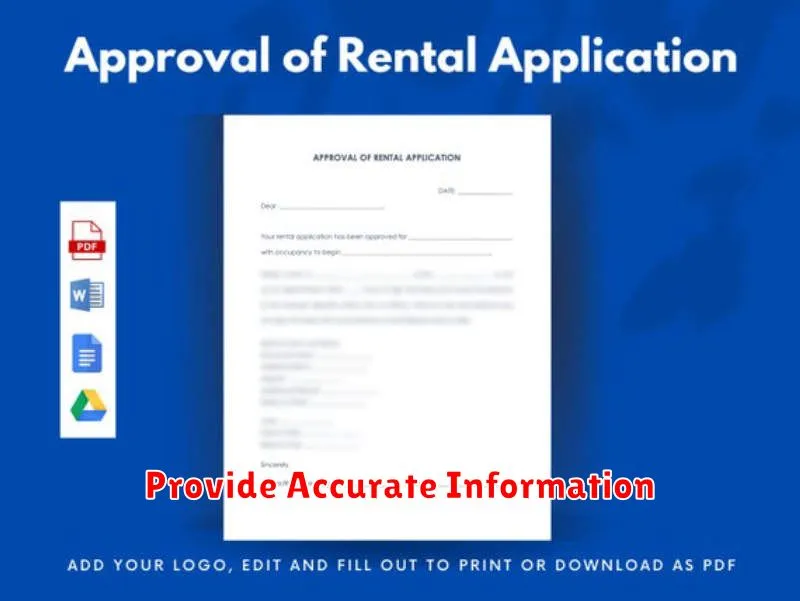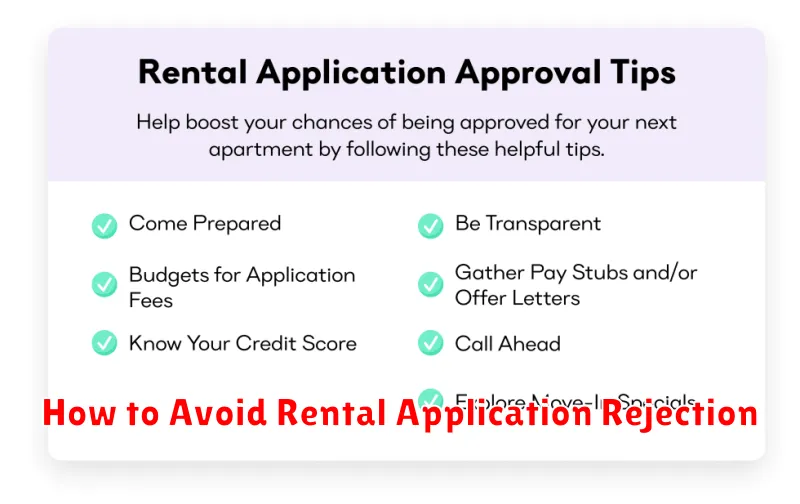Are you eager to secure your dream rental property but worried about the possibility of rental application rejection? The rental application process can be daunting, and facing rejection can be both frustrating and time-consuming. Understanding the common reasons for rental application rejection and taking proactive steps to strengthen your application can significantly increase your chances of approval. This guide will provide valuable insights and actionable advice on how to avoid rental application rejection and successfully secure your next home.
From credit score and rental history to income verification and references, we’ll cover the key areas landlords scrutinize when evaluating rental applications. Learn how to present yourself as a desirable tenant and improve your chances of getting approved. Don’t let rental application rejection stand in the way of your housing goals. Read on to learn how to navigate the process effectively and increase your likelihood of rental application success.
Check Your Credit First
Before you even start searching for a rental property, it’s crucial to understand your credit standing. Landlords use your credit report as a key indicator of your financial responsibility. A strong credit score significantly increases your chances of application approval.
Obtain a copy of your credit report from each of the three major credit bureaus. Review it carefully for any inaccuracies or negative marks. Look for errors, late payments, and outstanding debts. Addressing these issues proactively can improve your score over time.
Knowing your credit score helps you realistically assess the type of rental you can qualify for. This saves you time and prevents potential rejections down the line. It also gives you the opportunity to explain any negative items on your report directly to the landlord, demonstrating your commitment to responsible financial management.
Gather Required Documents
Having all necessary documents readily available can significantly expedite the application process and demonstrate your preparedness to a potential landlord. Preemptively gathering these materials showcases your organization and seriousness as a prospective tenant.
Commonly requested documents include:
- Proof of Income: Pay stubs, tax returns, bank statements, or a letter from your employer.
- Identification: A government-issued photo ID, such as a driver’s license or passport.
- Rental History: Contact information for previous landlords, demonstrating a positive rental track record.
- Credit Report: While some landlords pull their own, having a copy readily available can save time. Be prepared to address any negative entries.
- Application Fee: Ensure you have the necessary funds to cover the application fee, often required upfront.
Check with the specific landlord or property management company for their exact requirements as these may vary.
Provide Accurate Information

Accuracy is crucial throughout your rental application. Any discrepancies or omissions can raise red flags for landlords and lead to rejection. Double-check every detail before submitting your application.
Key areas requiring precise information:
- Personal Information: Full legal name, date of birth, social security number, and contact information.
- Employment History: Current and previous employers’ names, addresses, phone numbers, dates of employment, and salary. Provide pay stubs or other documentation to verify income.
- Rental History: Previous landlords’ names, addresses, phone numbers, and dates of tenancy. Be prepared to explain any gaps in your rental history.
- References: Provide accurate contact information for personal and professional references who can attest to your character and reliability.
Be honest about any past evictions or credit issues. Attempting to conceal these details will likely result in rejection. It’s often better to address them upfront with a brief explanation.
Avoid Gaps in Rental History
A continuous rental history demonstrates stability and responsibility to potential landlords. Gaps in your rental history can raise concerns. Landlords may worry about undisclosed issues with previous rentals or question your financial stability during those periods.
If you have gaps in your rental history, be prepared to explain them clearly and honestly. Provide documentation if possible. For example, if you lived with family, a letter from a family member confirming the arrangement can be helpful. If you were traveling, provide proof of your itinerary. If you owned a home during that time, documentation of ownership can address the gap.
Bridging the gap with alternative proof of responsibility can also improve your application. Consider providing character references or demonstrating consistent payment of other recurring bills, such as utilities or loan payments.
Write a Strong Cover Letter
A well-crafted cover letter can significantly improve your chances of rental application approval. It allows you to introduce yourself to the landlord or property manager and highlight key aspects of your application.
Personalize it. Avoid generic templates. Address the specific property and landlord, showcasing your genuine interest. Briefly mention something you appreciate about the property, demonstrating you’ve done your research.
Highlight your strengths. Emphasize your steady income, positive rental history, and responsible nature. If your credit score is less than ideal, briefly address it and offer context or a solution, like a guarantor.
Keep it concise. Landlords are busy. Limit your cover letter to one page, focusing on the most relevant information. Use a professional tone and proofread carefully for errors.

